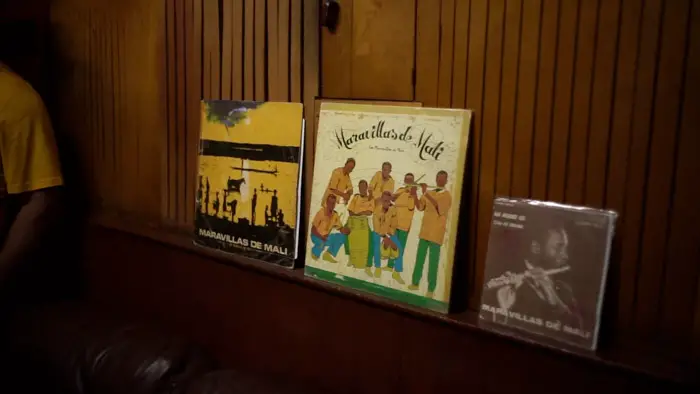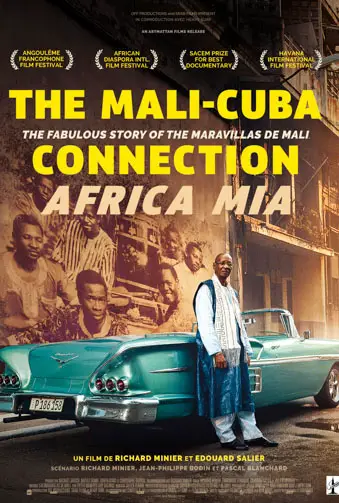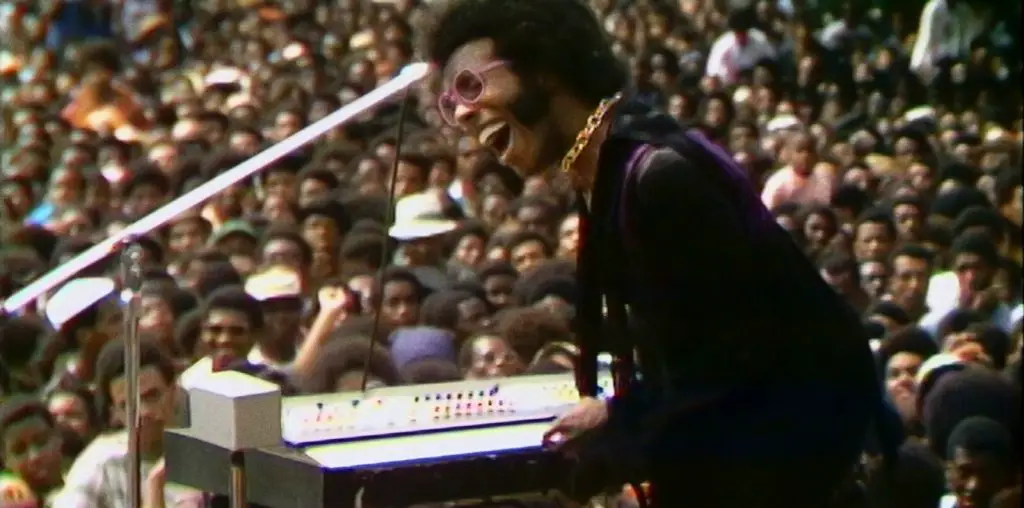
The Mali-Cuba Connection begins in 1964 at the height of the Cold War, when ten young, promising musicians from Mali, Africa, were invited to Cuba to study music and strengthen cultural links between the two socialist regimes. They went to learn, teach, and share cultures, and they made a lasting impact on world music. By blending their musical styles with Cuban influences, they created a whole new genre: Afro-Cuban. They also formed the quintessential Afro-Cuban group, Las Maravillas de Mali (The Wonders of Mali).
Upon returning to Mali, the group is approached to come to Ivory Coast and make music commercially. All but one of them refuse, feeling they should honor their obligation to teach and share what they’d seen and done in Cuba. Boncana Maïga accepted the offer and became a famous performer and producer and was considered a celebrity when he returned to Cuba to meet up with his old band. Boncana was credited with the band’s original formation and was met in their reunion as a returning band leader.

“…ten young, promising musicians from Mali, Africa, were invited to Cuba to study music and strengthen cultural links…”
Director and music producer Richard Minier was in Bamako, Mali, on New Year’s Day 2000, when he happened upon a performance in a bar by a former member of Las Maravillas de Mali. He was so moved that he decided to try to bring the seminal band back together. Minier tirelessly worked for years to find all the men and bring them together. Years turned into decades, and then in 2018, a chance for a new project came about. The band’s surviving members journeyed back to Cuba to celebrate their musical beginnings from all those years ago. They find as much joy in playing music together again as they do in rekindling their old friendships.
Minier wanted to tell the story that is as much his as it is the members of the band. He weaves the film around the decades of experience of the Las Maravillas de Mali and the 18 years he spent trying to pull them all back together in Havana to play the music they invented. That need to celebrate not just these musicians but also the legacy they left on the world at large, and the genre of music they helped create adds a sweeping, epic feel to a shockingly intimate story. The languages spoken, French and Spanish, are as lyrical as the Afro-Cuban music blend that is the soundtrack.
Las Maravillas de Mali’s sound is reminiscent of another Cuban revelation, The Buena Vista Social Club, and the same fire burns here. At the heart of the film is the music, the gently driving beat that spins out joy and sadness, familial warmth and solitude, love and life. The Mali-Cuba Connection explores an idea that spanned an ocean and touched everyone lucky enough to have experienced such smooth beats.

"…the heart of the film is the gently driving beat that spins out joy and sadness, familial warmth and solitude, love and life."


